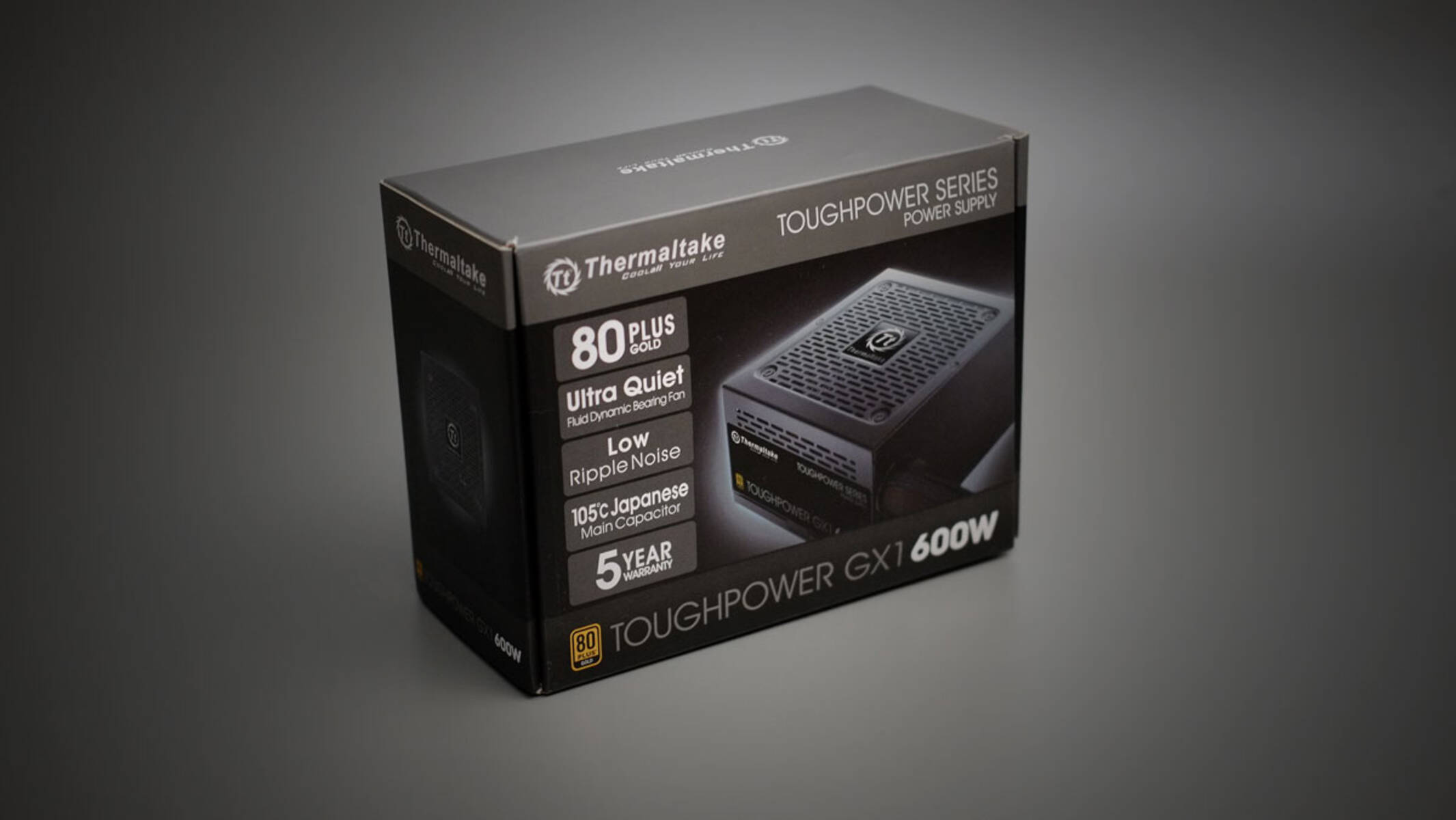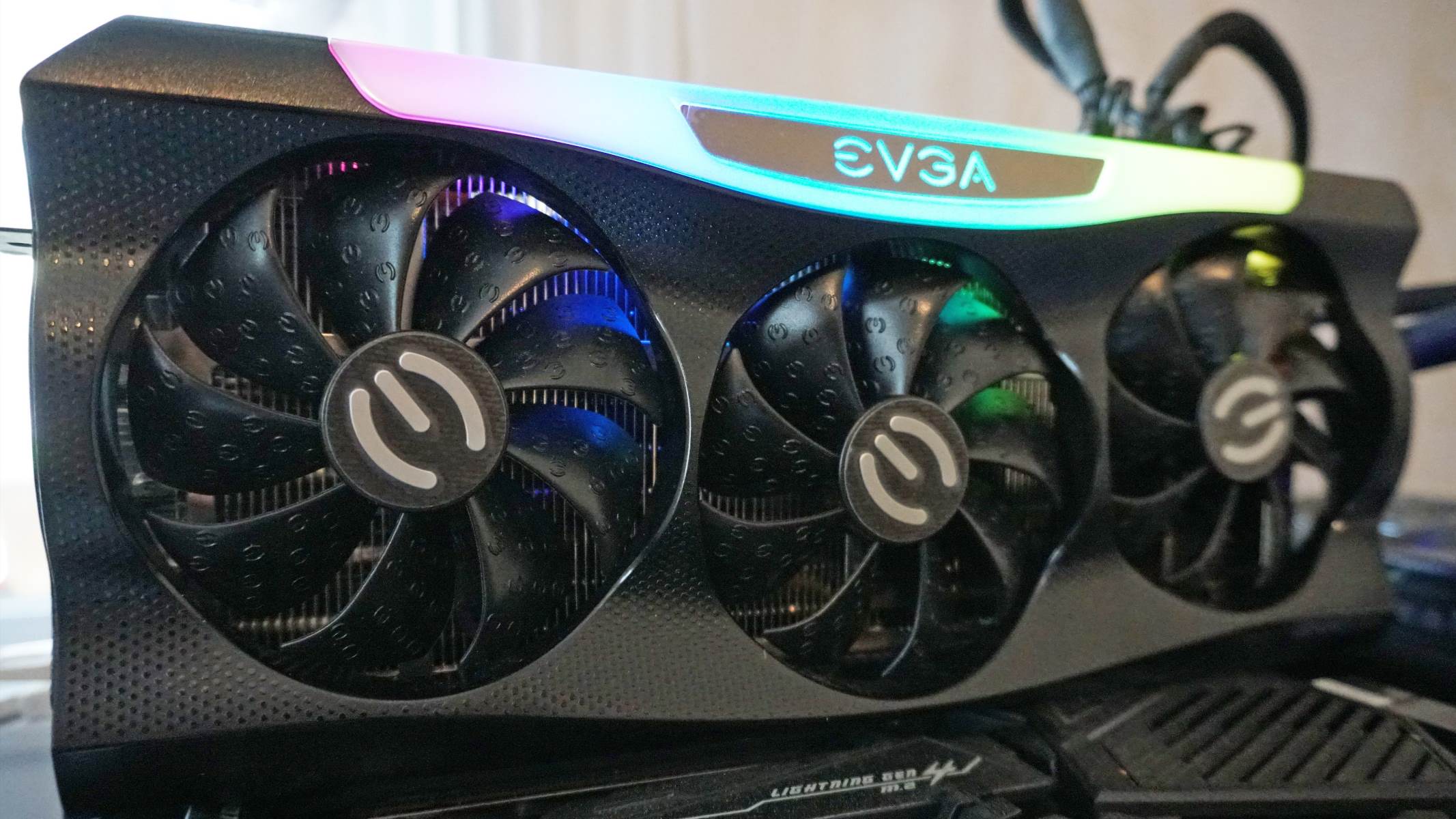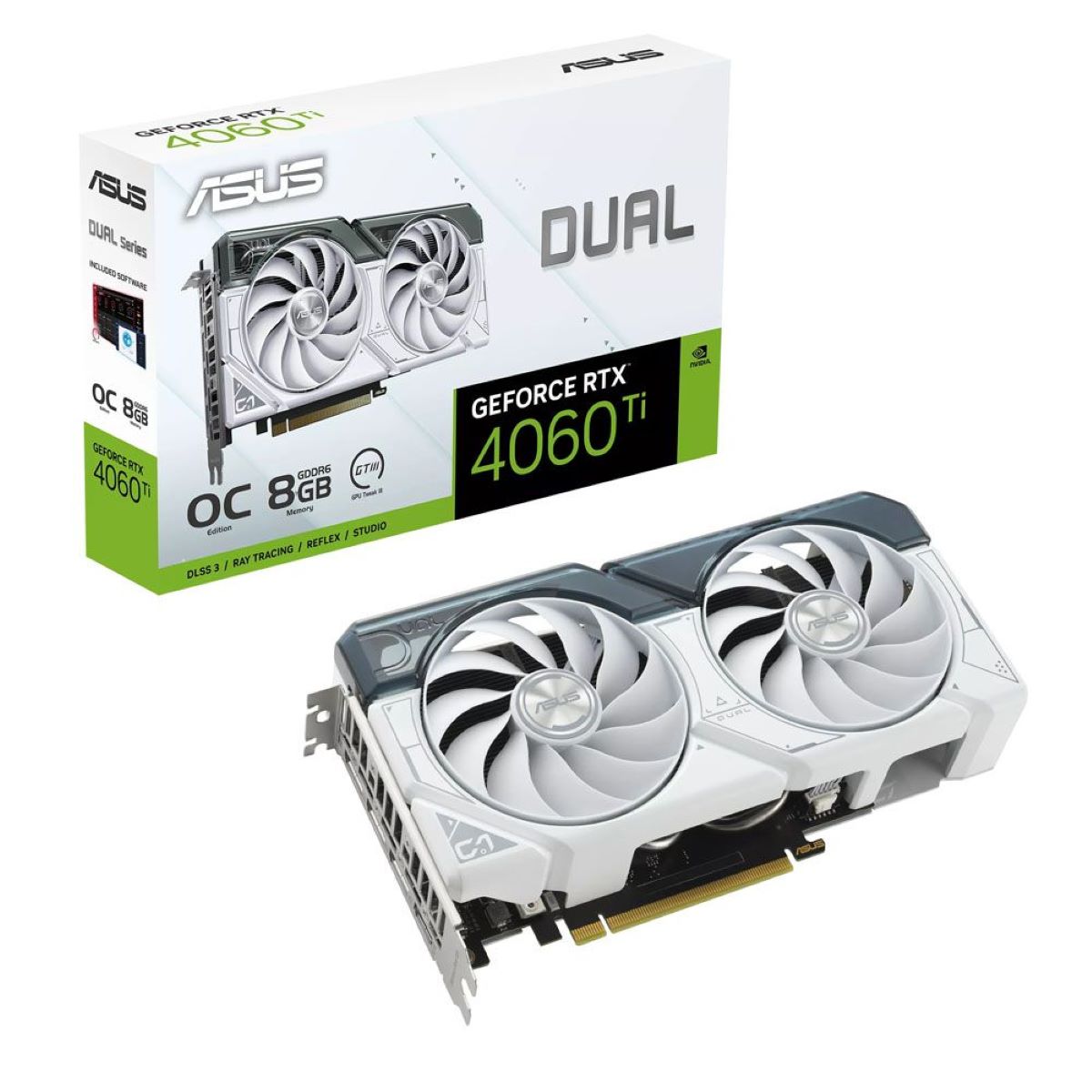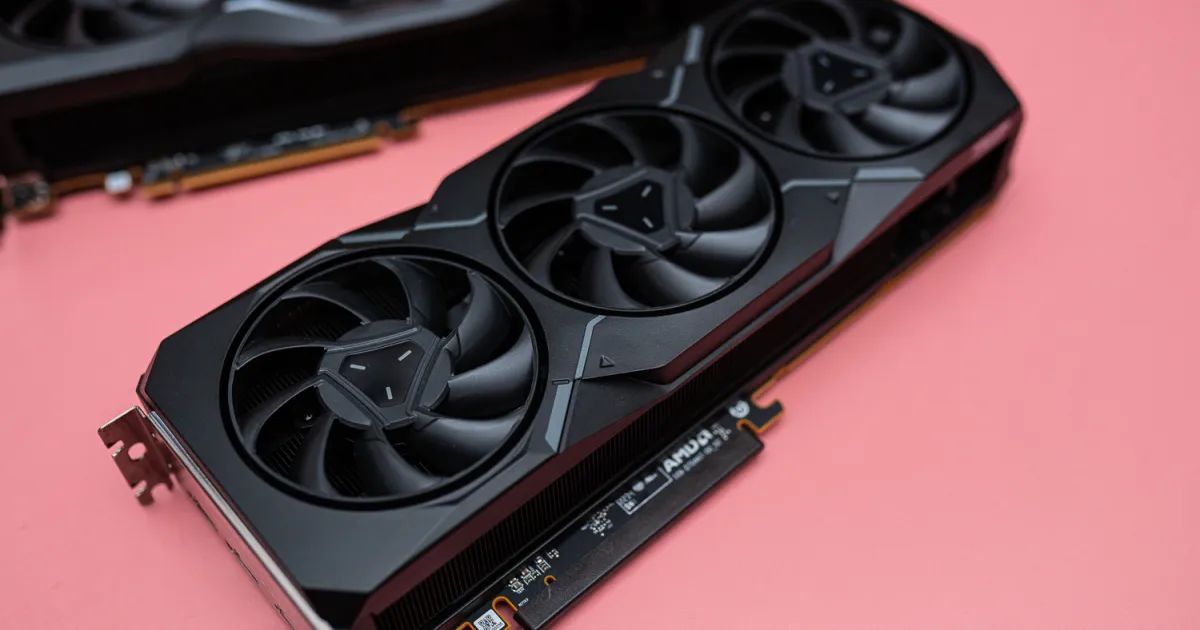Introduction
The NVIDIA GeForce RTX 3060 is an impressive graphics card that offers exceptional performance and cutting-edge features. However, to fully harness its power, it is crucial to have the right power supply unit (PSU). The PSU is responsible for providing stable and reliable power to the components in your system, and choosing the correct one is vital to maintain optimal performance and prevent any potential issues.
In this article, we will explore the different factors to consider when selecting a PSU for the RTX 3060. Whether you are building a new gaming rig or upgrading your existing system, understanding the power requirements of the RTX 3060 and how it interacts with your PSU is essential. We will discuss the appropriate wattage recommendation and the importance of efficiency and certification ratings. Additionally, we will delve into aspects such as cable connectors, cooling, noise levels, and overclocking considerations to help you make an informed decision.
Finding the perfect PSU for your RTX 3060 can be a daunting task with a wide range of options available in the market. Our aim here is to simplify the process and provide you with a list of top PSU recommendations for the RTX 3060. By the end of this article, you will have a comprehensive understanding of the factors to consider and the knowledge to make an informed decision, ensuring that your RTX 3060 runs flawlessly without any power-related issues.
Power Requirements of the RTX 3060
Before choosing a PSU for your RTX 3060, it’s important to understand its power requirements. The power consumption of a graphics card can vary depending on factors such as the GPU model, clock speeds, and load. The RTX 3060 is a relatively power-efficient card, but it still requires a reliable power supply to deliver adequate power.
The NVIDIA RTX 3060 has a TDP (Thermal Design Power) of 170W. This power rating indicates the maximum amount of power the card is designed to consume under typical usage conditions. However, it’s worth noting that actual power consumption can vary based on factors like GPU boost clocks and overclocking.
In addition to the power consumption of the graphics card, it’s important to consider the power requirements of the rest of your system components. This includes the CPU, motherboard, RAM, storage devices, and any other peripherals. A reliable rule of thumb is to ensure that the total power capacity of your PSU is greater than the combined power requirements of all your components, with some headroom for future upgrades.
To calculate the approximate power consumption of your system, you can use online PSU calculators or refer to the manufacturer’s specifications for each component to determine their power requirements. It’s important to consider both the peak power consumption and the sustained power consumption to ensure a stable and reliable power supply.
Keep in mind that the power requirements of the RTX 3060 can vary depending on the specific model and manufacturer. Some custom variants may have higher power requirements due to additional features or factory overclocking. Therefore, it is always recommended to refer to the manufacturer’s documentation or specifications for the specific model of the RTX 3060 you intend to purchase.
Factors to Consider When Choosing a PSU for the RTX 3060
When selecting a PSU for your RTX 3060, there are several important factors to consider to ensure compatibility, reliability, and optimal performance. Let’s dive into the key factors you should keep in mind:
- Wattage Recommendation: As mentioned earlier, the RTX 3060 has a TDP of 170W, but it’s crucial to factor in the power requirements of your other components as well. A PSU with sufficient wattage capacity will not only provide enough power to your graphics card but also ensure stable operation and prevent any potential issues.
- Efficiency and Certification Ratings: Look for PSUs that are 80 Plus certified or higher. This certification indicates that the PSU meets certain efficiency standards, ensuring that it converts power from the wall socket to your components with minimal wastage. A more efficient PSU will not only save you on electricity bills but also generate less heat and operate cooler.
- Cable Connectors and Lengths: Check if the PSU has the necessary connectors to power your RTX 3060. Most modern PSUs include PCIe connectors specifically designed for graphics cards. Also, consider the length of the cables to ensure they can reach your components comfortably, especially in larger cases.
- Cooling and Noise Levels: Look for a PSU with a reliable cooling system to maintain optimal operating temperatures. PSUs with larger fans tend to be quieter and provide better cooling performance. A cooler PSU will not only enhance its lifespan but also contribute to overall system stability.
- Overclocking Considerations: If you plan to overclock your RTX 3060 for additional performance, make sure the PSU can handle the increased power demands. Overclocking typically requires more power, so choosing a PSU with higher wattage headroom is advisable.
- Modular vs. Non-Modular PSUs: Consider whether you prefer a modular or non-modular PSU. Modular PSUs allow you to only connect the cables you need, resulting in cleaner cable management and improved airflow. However, they tend to be more expensive, so weigh the benefits against the cost.
By considering these factors when choosing a PSU for your RTX 3060, you can ensure compatibility, reliability, and optimal performance. It’s important to invest in a quality PSU that can provide stable power delivery and support your system’s demands. Doing so will not only protect your components but also maximize the potential of your RTX 3060, providing an exceptional gaming and graphics experience.
Wattage Recommendation for the RTX 3060
Determining the appropriate wattage for your PSU is crucial to ensure that your RTX 3060 operates optimally and to avoid any power-related issues. While the RTX 3060 has a TDP of 170W, it’s important to consider the power requirements of the rest of your system components as well.
For a system featuring the RTX 3060 as the primary graphics card, a PSU with a minimum recommended wattage of 500W is generally sufficient. This takes into account the power requirements of the GPU, CPU, motherboard, RAM, storage drives, and other peripherals. However, if you have a high-end CPU or plan on overclocking both the CPU and GPU, you may want to consider a PSU with a higher wattage rating.
It’s important to note that the wattage recommendation is based on an average system configuration. If you have a custom-built system with additional components or if you plan to add more components in the future, it’s advisable to choose a power supply with a higher wattage to accommodate potential upgrades.
Additionally, consider the efficiency rating of the PSU when selecting wattage. Higher efficiency PSUs can deliver more power to your components while wasting less energy, resulting in lower electricity bills and reduced heat generation. Choosing a PSU with a higher 80 Plus certification, such as 80 Plus Gold or Platinum, can offer better efficiency.
Ultimately, the wattage recommendation for your RTX 3060 depends on the specific configuration of your system and your usage requirements. It’s crucial to strike a balance between having enough wattage to power all your components and avoiding overkill, as an excessively high wattage PSU can be inefficient and unnecessarily expensive.
To determine the ideal PSU wattage for your system, you can use online PSU calculators that take into account your specific components and estimated power requirements. These calculators provide a more accurate recommendation based on your unique system configuration, ensuring that you choose a PSU that meets your needs.
Efficiency and Certification Ratings
When choosing a power supply for your RTX 3060, it’s important to consider the efficiency and certification ratings of the PSU. These factors play a significant role in both the performance and cost-effectiveness of your system.
Efficiency refers to how effectively a PSU can convert AC power from your wall socket to DC power that your components can use. Higher efficiency means less wasted energy in the form of heat, resulting in lower electricity bills and a cooler-operating system. The efficiency of a PSU is expressed as a percentage, with higher percentages indicating better efficiency.
One common certification to look for is the 80 Plus certification. This certification ensures that the PSU meets certain efficiency standards set by the 80 Plus organization. The certification comes in several levels, including 80 Plus, 80 Plus Bronze, 80 Plus Silver, 80 Plus Gold, 80 Plus Platinum, and 80 Plus Titanium. The higher the certification level, the more efficient the PSU is.
Choosing a PSU with a higher efficiency rating not only helps reduce your energy consumption but also contributes to system stability. Higher efficiency means the PSU generates less heat, which reduces the strain on cooling systems and enhances overall system performance.
The 80 Plus certification is not the only rating to consider. Other certifications such as ENERGY STAR and Eco-friendly labels may also indicate a PSU’s efficiency and eco-friendliness. Additionally, look for PSUs with active power factor correction (PFC) to ensure a cleaner and more stable power supply.
While higher efficiency PSUs generally come at a slightly higher cost, the long-term energy savings can make up for the initial investment. It’s important to assess your needs and consider the projected usage of your system to determine the level of efficiency that’s suitable for you.
Ultimately, selecting a PSU with a reputable efficiency and certification rating ensures a reliable and cost-effective power supply for your RTX 3060. It contributes to both the performance and longevity of your system, allowing you to enjoy smooth and efficient operation while minimizing energy costs and environmental impact.
Cable Connectors and Lengths
When choosing a power supply for your RTX 3060, it’s crucial to consider the cable connectors and lengths provided by the PSU. Having the appropriate connectors and ensuring they reach all your components is essential for a clean and efficient system build.
One of the most important cable connectors to look for is the PCIe connector. The RTX 3060 typically requires one or two PCIe connectors, depending on the specific model. Ensure that the PSU you choose has the necessary number of PCIe connectors to power your graphics card. Most modern PSUs are equipped with PCIe connectors that are compatible with the RTX 3060, but it’s always wise to double-check.
Apart from the PCIe connectors, consider the availability of other essential connectors, such as the 24-pin ATX connector for the motherboard, SATA connectors for storage drives, CPU power connectors, and peripheral connectors for other components like fans or RGB lighting.
Length is another important factor to consider when it comes to the PSU cables. Larger cases may require longer cables to reach the components. On the other hand, smaller cases or compact builds may benefit from shorter cables to minimize cable clutter and improve airflow. Make sure to check the cable lengths provided by the PSU and compare them with the dimensions of your case to ensure compatibility.
Some power supplies offer modular or semi-modular configurations. With these, you can detach or connect specific cables as needed. This feature allows for better cable management, reducing clutter and improving airflow within your system. Modular PSUs tend to be slightly more expensive than non-modular ones but offer greater flexibility and tidier builds.
Before purchasing a PSU, it’s always advisable to consult the manufacturer’s documentation or specifications to confirm the types and lengths of cable connectors provided. This ensures that you have the required cables to power your RTX 3060 and the rest of your system components, guaranteeing a seamless and efficient installation.
Cooling and Noise Levels
When selecting a power supply for your RTX 3060, it’s important to consider the cooling system and noise levels of the PSU. A well-cooled PSU not only ensures optimal performance but also contributes to a quieter and more comfortable computing experience.
PSUs are equipped with cooling fans that help dissipate heat generated during operation. The size and quality of the fan can affect cooling performance. Larger fans tend to spin at lower RPMs, resulting in quieter operation while still providing adequate cooling. Additionally, fans with fluid dynamic bearings (FDB) or ball bearings can offer smoother operation and longer lifespan compared to sleeve bearings.
Some high-end PSUs feature a zero RPM mode, where the fan doesn’t spin under low load or idle conditions, resulting in complete silence. This feature can significantly reduce noise levels, especially during less demanding tasks such as web browsing or document editing.
Noise levels are typically measured in decibels (dB). Look for PSUs with lower noise ratings to ensure quieter operation. However, it’s important to strike a balance between cooling performance and noise levels, as excessive focus on silence may compromise cooling efficiency.
Furthermore, consider the overall airflow and ventilation within your system. A PSU with modular cable management can help minimize cable clutter and improve airflow, leading to lower overall temperatures. Adequate airflow prevents components from overheating, prolonging their lifespan and maintaining optimal performance.
To ensure that you select a PSU with effective cooling and low noise levels, it’s recommended to read reviews by reputable sources and consider the experiences of other users. These reviews often evaluate factors such as cooling performance and noise levels, helping you make an informed decision based on real-world usage scenarios.
By choosing a properly cooled PSU with low noise levels, you can maintain optimal performance of your RTX 3060 while enjoying a quieter and more comfortable computing environment.
Overclocking Considerations
Overclocking your RTX 3060 can unlock additional performance and allow you to push the limits of your graphics card. However, it’s important to consider certain factors when choosing a power supply for overclocking to ensure stability and reliability.
Overclocking typically requires additional power from the GPU, as higher clock speeds and voltages result in increased power consumption. Therefore, it’s recommended to choose a PSU with a higher wattage rating to provide sufficient power headroom for overclocking. This prevents the PSU from operating at its maximum capacity, reducing the risk of instability or even system shutdowns.
Additionally, a PSU with a high-quality voltage regulation system is essential for stable overclocking. Fluctuating power can cause instability in an overclocked system, leading to crashes or errors. Look for a PSU with tight voltage regulation and low ripple and noise levels to ensure a stable power supply during extreme usage.
Efficiency is another factor to consider when overclocking. As power consumption increases during overclocking, a more efficient PSU can deliver the necessary power with less wasted energy, reducing heat and maximizing the performance potential of your components. Choosing a PSU with an 80 Plus Gold or higher certification can offer better efficiency and ensure stable overclocking.
Proper cooling is crucial for overclocking as it helps dissipate the additional heat generated by the GPU. Ensure that your system has adequate cooling, including case fans and a CPU cooler, in addition to the PSU’s built-in cooling system. A well-ventilated case and efficient cooling will help maintain stable operating temperatures, minimizing the risk of thermal throttling and potential damage to your components.
It’s important to note that overclocking involves pushing your components beyond their factory settings, which can void warranties and potentially reduce their lifespan. Always monitor temperatures and stability during overclocking and be prepared to adjust settings or revert to stock values if issues arise.
When selecting a power supply for overclocking, ensure that it meets the power requirements of your overclocked GPU, as well as the rest of your system components. Consider high-quality PSUs with additional wattage headroom, efficient voltage regulation, and robust cooling systems to support stable and reliable overclocking of your RTX 3060.
Modular vs. Non-Modular PSUs
When selecting a power supply for your RTX 3060, you’ll come across two main types: modular and non-modular PSUs. Understanding the differences between the two can help you make an informed decision based on your specific needs and preferences.
Non-modular PSUs come with fixed cables that are permanently attached to the unit. These PSUs are generally more affordable compared to modular ones and are suitable for basic system builds where cable management is not a major concern. However, non-modular PSUs can result in cable clutter, making it harder to achieve clean and organized cable routing. This can not only impede airflow but also make system maintenance and upgrades more challenging.
On the other hand, modular PSUs offer more flexibility when it comes to cable management. They come with detachable cables, allowing you to connect only the cables you need for your specific system configuration. This results in cleaner cable routing, improved airflow, and easier installation and maintenance. Modular PSUs often come at a slightly higher price point, reflecting the added convenience and customization they offer.
Semi-modular PSUs are also available, combining the convenience of modular cables for key components such as PCIe and CPU power, while providing fixed cables for essential connections like the motherboard. This can strike a balance between ease of cable management and affordability.
When choosing between modular and non-modular PSUs, consider factors such as your case size, your preference for cable management, and your future upgrade plans. If you have a smaller case with limited space and want to optimize airflow, a modular PSU may be the best choice. Additionally, if you plan on upgrading your system down the line, a modular PSU allows for easier cable rearrangement and reduces the hassle of dealing with unnecessary cables.
It’s important to note that the performance and power delivery of modular and non-modular PSUs are generally comparable. The main difference lies in the convenience and tidiness of cable management. Assess your specific needs and budget to determine whether the added flexibility and ease of cable management provided by a modular PSU are worth the additional cost.
In summary, modular PSUs offer greater flexibility and improved cable management, while non-modular PSUs are generally more affordable. Consider your case size, cable management preferences, and future upgrade plans to make an informed decision on whether a modular or non-modular PSU is the best fit for your RTX 3060 and overall system build.
Top PSU Recommendations for the RTX 3060
Choosing the right power supply unit (PSU) is crucial for optimal performance and reliability with your RTX 3060. To help you in your search, we have compiled a list of top PSU recommendations:
- Seasonic Focus GX-650: This 650W PSU offers excellent efficiency, reliable performance, and modular cables. It features an 80 Plus Gold certification and a quiet fan operation.
- Corsair RM750x: With 750W of power, an 80 Plus Gold certification, and fully modular cables, this PSU provides efficient and reliable performance. It also boasts a quiet fan and ten-year warranty.
- EVGA Supernova 650 G3: This 650W PSU delivers stable power with high efficiency, thanks to its 80 Plus Gold certification. Its compact size and fully modular design make it ideal for smaller PC builds.
- Seasonic Prime GX-750: Featuring 750W of power, an 80 Plus Gold certification, and fully modular cables, this PSU offers excellent efficiency and stable power delivery. It also comes with a ten-year warranty for peace of mind.
- be quiet! Straight Power 11 750W: With an 80 Plus Platinum certification and a semi-modular design, this PSU provides efficient and quiet operation. It offers stable power delivery and comes with a five-year warranty.
These are just a few of the top PSU options available for the RTX 3060. It’s important to consider factors such as wattage, efficiency, cable management, and warranty when making a final decision. Additionally, it can be beneficial to read reviews and compare prices to ensure the best value for your money.
Remember, selecting a high-quality and reliable PSU is essential to ensure the stable and efficient operation of your RTX 3060, protecting your investment and maximizing your gaming or graphics performance.
Conclusion
Choosing the right power supply unit (PSU) for your RTX 3060 is crucial for a stable, reliable, and efficient system. By considering various factors such as wattage, efficiency, cable management, cooling, and noise levels, you can make an informed decision that meets your unique requirements.
Understanding the power requirements of the RTX 3060 and considering the power needs of your entire system is essential for selecting an appropriate PSU wattage. Ensure that the PSU has sufficient headroom to accommodate any future upgrades or overclocking.
Efficiency and certification ratings play a significant role in both cost-effectiveness and performance. Opting for PSUs with higher efficiency ratings, such as 80 Plus Gold or Platinum, ensures not only reduced energy consumption but also a cooler and more stable system.
Pay attention to cable connectors and lengths, as well as the modular or non-modular design of the PSU. A modular PSU allows for better cable management and airflow, while non-modular options can be more budget-friendly.
Cooling and noise levels are important considerations, particularly if you prioritize a quieter system or plan on overclocking. Look for PSUs with reliable cooling systems, larger fans for quiet operation, and even zero RPM modes for silent operation during light usage.
Lastly, consider some top PSU recommendations for the RTX 3060, but do your own research, read reviews, and compare specifications to find the best fit for your specific needs.
By paying attention to these factors and choosing a high-quality PSU that meets the power requirements of your RTX 3060 and the rest of your system, you can ensure optimal performance, stability, and longevity. A reliable and efficient PSU will not only protect your components but also enhance your overall gaming or graphics experience.

























